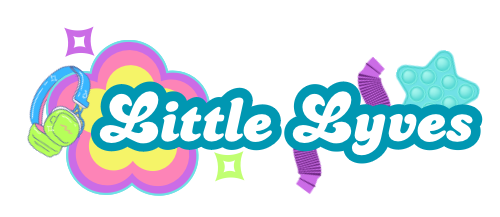Parenting is usually described as the most rewarding and challenging journey a person can embark on. For neurodivergent parents, those with autism, ADHD, sensory processing differences, or other forms of neurodivergence, the experience comes with unique challenges and triumphs.
Better understanding these challenges can foster self-compassion and help us create a family environment that thrives on mutual understanding.
Challenges Neurodivergent Parents Face
1. Sensory Overwhelm
Children are often noisy, energetic, and messy; all of which can be overwhelming for parents with heightened sensory sensitivities. Loud crying, constant movement, or the chaos of toys scattered around the house can lead to overstimulation, just like our ND children. Managing this overwhelm while also responding to a child’s needs requires a lot of emotional bandwidth.
2. Past Experiences and Childhood
Many neurodivergent parents grew up undiagnosed and misunderstood. This meant often facing invalidation or unrealistic expectations from their own families, which can influence their parenting style today. For some people, parenting may trigger memories of being a misunderstood child, leading to emotional challenges as they work to parent differently than they were parented while healing from their own childhood trauma.
3. Temper Burnout and Meltdowns
Parenting requires patience, which is an attribute that may decrease when a parent is having trouble managing their own emotional regulation. Burnout from juggling sensory demands, emotional labor, and everyday parenting tasks can result in meltdowns. These moments are not failures, but indicators that a parent’s needs also deserve attention and care.
4. Navigating Social Expectations
Parenting often comes with socializing at places like the park, school events and sporting events. It also can come with unsolicited advice, comparisons, and judgements. Neurodivergent parents may feel added pressure to “fit in” with neurotypical parenting norms. This can create anxiety about how their differences might affect their child’s experiences or perceptions of their parent, while also overstimulating parents.
Strengths of Neurodivergent Parents
Despite these challenges, neurodivergent parents bring incredible strengths to their parenting:
- Empathy and Understanding: Their own experiences of feeling different often translate into deep compassion for their children.
- Creativity: Thinking outside of the box helps them solve problems in unique ways, from creating sensory-friendly spaces to creating routines that honor everyone’s needs.
- Advocacy: Neurodivergent parents are often fierce advocates for their children, especially if their child is also neurodivergent.
What to Do if You Suspect You Are Neurodivergent, But Are Not Diagnosed
Many parents don’t discover their neurodivergence until adulthood, often while discovering and researching their child’s traits. If you resonate with the experiences described above, consider these steps:
- Learn More: The Embrace Autism website offers free resources and self-assessment tools to help adults explore if they might be on the autism spectrum. These are the most up-to-date, scientifically reliable screenings available to us and they are free.
- Seek Support: Connect with therapists or counselors experienced in working with neurodivergent adults. You can call your health insurance for providers local to you.
- Build Community: Find online or in-person groups of neurodivergent parents for shared understanding and support. These communities have personally been a major help for me.
- Prioritize Self-Care: This is a big one. Establish routines that nurture your sensory and emotional needs alongside your parenting responsibilities. I’ll link another article here (coming by Nov. 24, 2024) with more tips and tools that can support you.
Final Thoughts
Parenting as a neurodivergent person is not about striving for perfection. It’s about embracing who you are while learning to adapt to your unique challenges. Remember, your child doesn’t need a perfect parent. They need you, with all your strengths, quirks, and love. Your journey toward self-understanding is a gift to both you and your family as it fosters authenticity, resilience, hope and connection.


